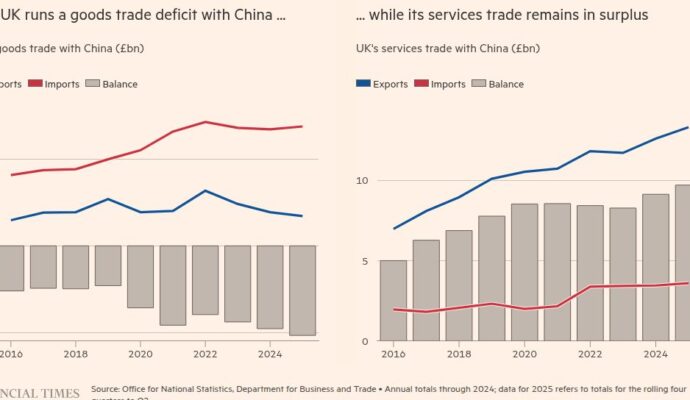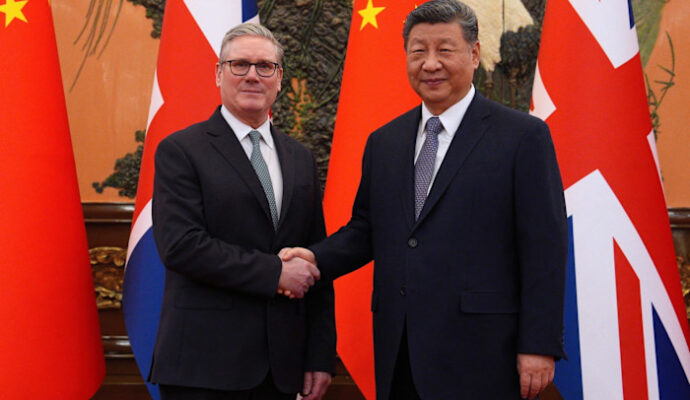Cheng Li-wun’s victory in a race to lead Taiwan’s main opposition KMT party has elevated her to a key role in the fractious politics of one of the world’s geopolitical flashpoints.
On her election at the weekend China’s President Xi Jinping was quick to congratulate Cheng, who sees Taiwan as part of a wider Chinese nation. He said he expected the KMT to work with his Communist party to “advance national reunification”.
But Cheng’s desire for warmer ties with Beijing and her opposition to a push by President Lai Ching-te to raise the military budget risk antagonising US President Donald Trump, who has called on Taiwan to spend more on its own defence.
Facing increasing military pressure from China, Lai wants to increase defence spending to 3.32 per cent of GDP next year. But Cheng, 55, a former legislator who begins her four-year term as KMT chair on November 1, says Taiwan “can’t afford it”.
Cheng’s opposition to higher defence spending would “renew friction between the KMT and the US as the Trump administration continues to put emphasis on the need for Taiwan to enhance its defence capabilities”, said William Yang, a senior analyst at International Crisis Group.
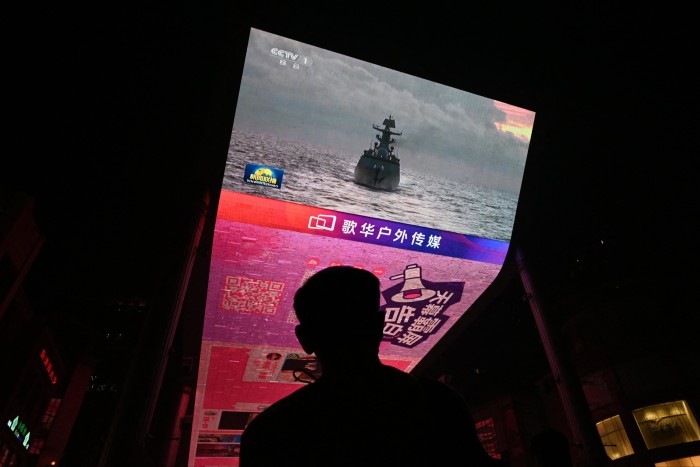
Although the KMT is the largest party in Taiwan’s legislature and together with the smaller Taiwan People’s party commands a parliamentary majority, it has lost three consecutive presidential elections to candidates from Lai’s Democratic Progressive party.
Speaking after her victory on Saturday, Cheng promised to end that run of defeats at the 2028 poll and to “achieve cross-Strait peace”.
“The KMT must be reborn and refreshed,” she declared.
Cheng’s emphatic victory in the election — she garnered 50 per cent, well ahead of the leading establishment candidate Hau Lung-bin and four others — signals a potential turning point for the party.
The KMT has long adhered to the so-called “1992 Consensus”, a formula by which it agrees with the Chinese Communist party that both Taiwan and the mainland belong to “one China”, while not accepting the CCP’s definition of it.
However, Cheng’s rhetoric has been markedly more Beijing-friendly than outgoing party chair Eric Chu, putting greater stress on the need for “peace” and “co-operation” across the Taiwan Strait and warning against relying too much on the US.
Tso Chen-dong, a professor of political science at National Taiwan University and former KMT party official, said Cheng had not previously been seen as particularly pro-China.
However, on the campaign trail, “what differentiated Ms Cheng from other candidates was that she avoided criticising Beijing,” Tso said.
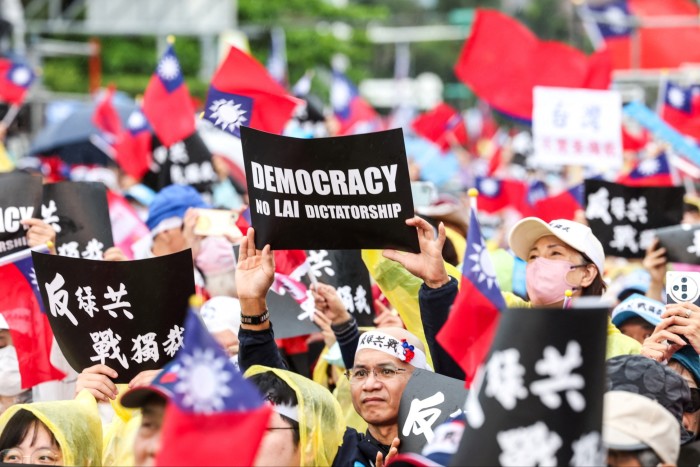
She was also more vocal than her rivals in stressing her Chinese identity, saying she wanted to “make all Taiwanese able to proudly say: ‘I am Chinese’.” Many KMT supporters are offended by Lai’s tougher rhetoric on China, which they feel makes it harder for them to embrace that identity.
Analysts said Cheng’s election reflected disenchantment among KMT members with the party’s established leaders and could help revitalise it ahead of the 2028 election.
Dafydd Fell, a professor at Soas University of London who focuses on Taiwan, said the more moderate stance of Cheng’s main rival Hau was “closer to the average Taiwan voter”.
But Fell said KMT members saw Hau, 73, as “too old and too much of an establishment candidate” and judged Cheng “best placed to lead the party back to power”.
“She has the potential to give the party a younger image and appeal to younger voters,” he said.
Still, Cheng’s stance on identity carries risks for the KMT, which governed mainland China in the first half of the 20th century but must now appeal to an electorate dominated for years by people who identify as Taiwanese and not Chinese.
“If she keeps saying things like ‘we are all Chinese’, the KMT is doomed,” Michael You, head of the Taiwan Public Opinion Foundation, wrote on social media.
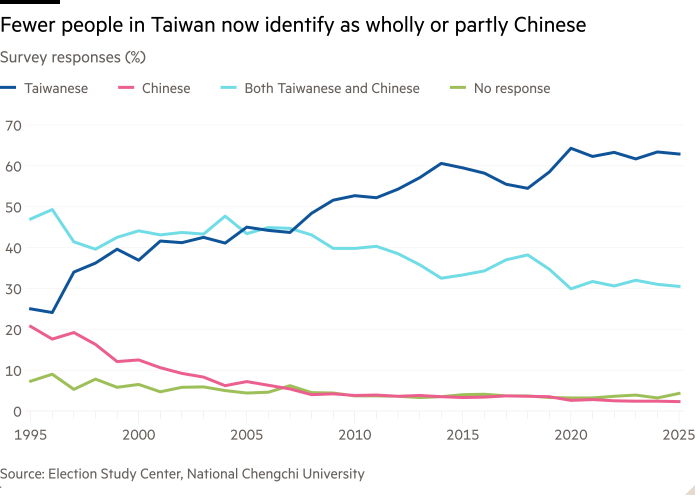
Liu Jia-wei, a professor at National Taipei University, rejected the characterisation of Cheng as being supportive of Beijing.
“She’s not pro-China. She’s advocating for peace, but without letting Taiwan lose its sovereignty,” Liu said.
Striking an electorally successful tone on China, which claims sovereignty over Taiwan and has threatened to take the island by force, will be just one of Cheng’s challenges.
In her victory speech, she called for unity in the deeply divided KMT, many of whose city mayors and county politicians backed her opponents. She has outlined plans for reform of the party, including creating a shadow cabinet she hopes will encourage “healthy competition of policies and proposals”.
Cheng will also have to focus on fundraising. “Money is really an issue,” said Tony Lin, a KMT official.
An early test of her ability to work with the TPP to make best use of the opposition’s parliamentary majority is likely to be a vote expected soon on the DPP government’s plans for a special defence budget.
It is unclear how much influence Cheng will have over the KMT’s sitting legislators. But analysts said her leadership role was set to add to polarisation between the party and a ruling DPP that is strongly committed to Taiwan’s separate identity and determined to strengthen defences against an increasingly assertive China.
Cheng entered politics as a member of the DPP who once wanted Taiwanese to “build our own nation”. But she has given few signs of hoping to build bridges with her former comrades.
“I don’t see much room for consensus between the two sides with Cheng at the helm of the KMT,” said Fell.
